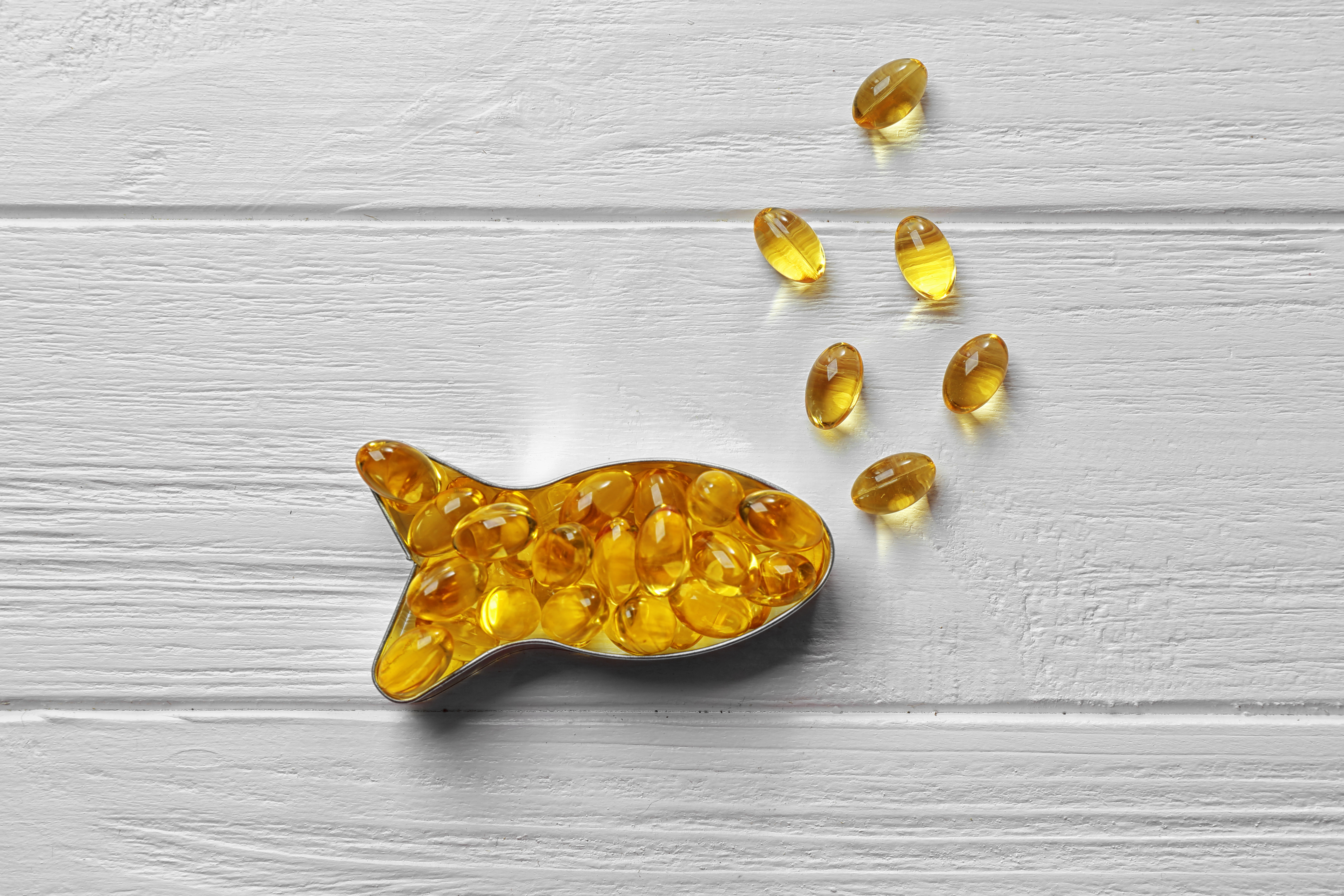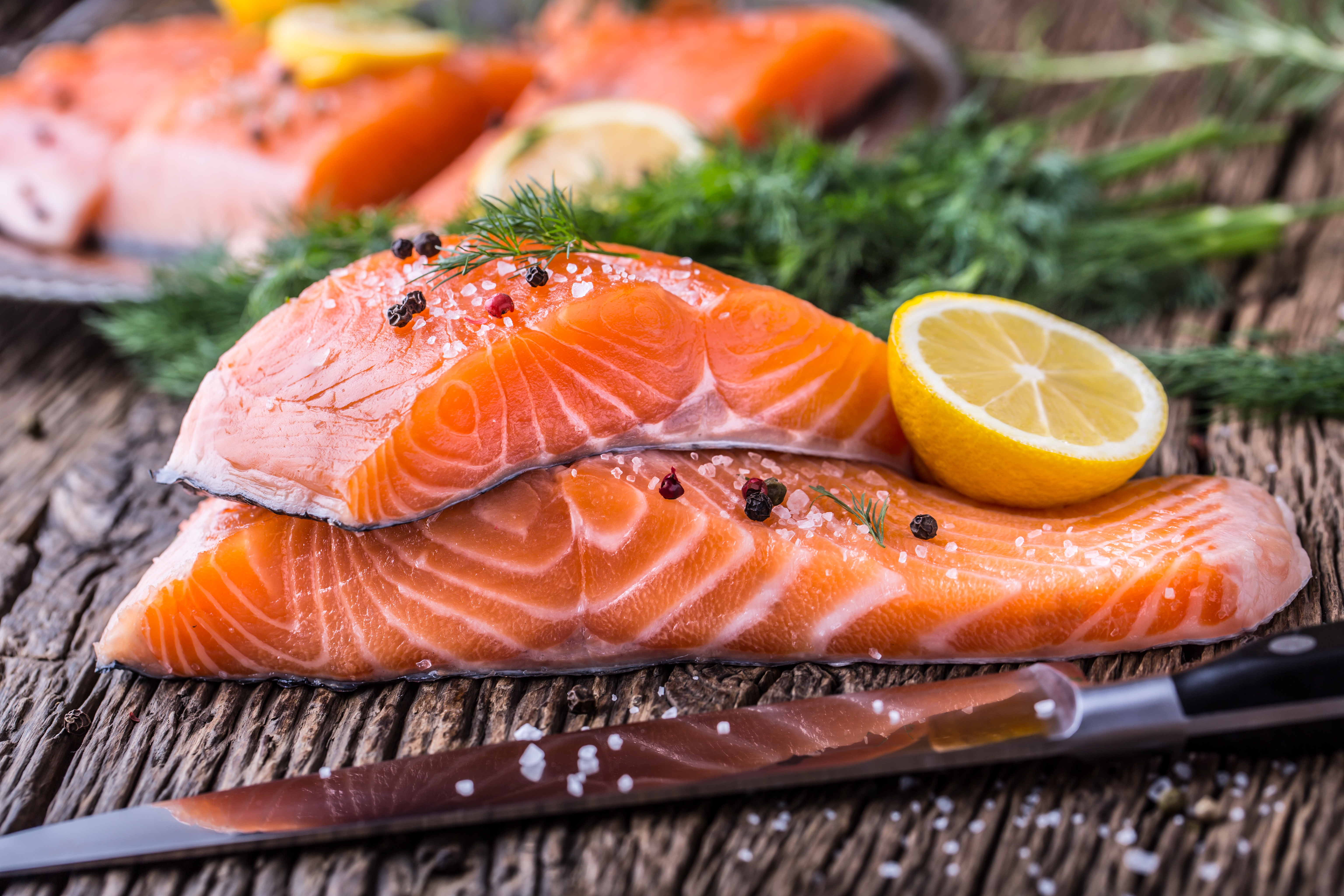HEALTHY LIVING & SUPPLEMENTS
The Guide to Fish Oil and Omega-3 Fatty Acids

Madison Rhoads
4 December 2017
Fish oil has grown in popularity over the last few years, especially as people begin to understand the importance of getting omega-3 fatty acids (EPA & DHA) in their diet.
A recent Harvard study showed that increased omega-3 intake is directly linked to lower blood pressure and heart rate, improved blood vessel function, reduced inflammation, and decreased risk for major cardiac events and arrhythmia. Because omega-3 fats are an essential component of cell membranes in the body and since they play a role in the development of hormones responsible for inflammation and blood clotting, they have also been shown to help prevent or reduce certain autoimmune conditions and cancer risks as well as improve cognitive function.
Unfortunately, unlike other essential fats needed for our health, our bodies do not create omega-3 fats naturally. They must come from the foods that we eat, such as fish, nuts/walnuts, flaxseed, chia seeds, and dark, leafy vegetables.

Most people do not have enough Omega-3 fats in their diet. High quality fish oil supplements are a great way to get increase your Omega-3 fats.
Using Fish Oil for Omega-3s
Since fish is the most readily available and potent source of these fats, incorporating fish (specifically, anchovies, herring, mackerel, salmon, sardines, lake trout or tuna) into one’s weekly diet is the easiest way to get healthy, omega-3 fats. While this may be an easy step for some, eating fish on a regular basis is simply not an option for most people, either because of limited access to fresh seafood or an aversion to the taste of fish. This is where fish oil supplementation provides a great alternative.
While eating fish protein is the best way to get the benefits of omega-3 fats, high-quality fish oils provide a healthy, daily concentration of EPA & DHA that is easily absorbed and used by the body. A single day’s intake of fish oil often contains 1.5x the amount of DHA found in a single fillet of fish and without the need to shop for, cook, and then eat a meal! When fish oil supplements are added to a diet that incorporates 2-3 servings of high omega-3 fish proteins per week (such as salmon), the health benefits are staggering.
When selecting a fish oil supplement, it’s important to make sure to select one that has been through rigorous testing to remove mercury and other contaminants. Getting a high concentration of omega-3s, specifically DHA, is also critical when making a selection. Some fish oils are naturally high in vitamin D, specifically ones made from cod liver or salmon. Vitamin D, along with daily probiotics and fish oil, is one of three supplements every person should consider taking on a daily basis, so getting two of these vital sources in one is not only efficient, but extremely beneficial for your health.
Alternatives to Fish Oil for Omega-3s
If you are looking to add more natural sources of omega-3 to your diet without increasing your fish consumption, then keeping raw walnuts, flax seeds, and chia seeds around is another great option, especially for vegetarians and vegans. It’s easy to add these items to salads, shakes, or just eat them as snacks. Flaxseed oil can also be taken as an omega-3 supplement either in pill or liquid form or added to foods. It should be noted that the omega-3 fat contained in nuts and seeds is ALA, which the body must then convert into EPA and DHA. This process is not efficient and does not provide the body with the same concentrations of omega-3 per serving as gained from fish oil. So, while raw nuts and seeds are a helpful source, they should not be the primary means of getting omega-3 unless fish oil is not an option.

Wild-caught Salmon is one of the most common fish containing Omega-3 fats and is a great addition to your diet.
Where to Start?
Fish oils are easily purchased at most major supplement stores and can be found on most online retailers. We recommend looking at Nordic Naturals or Carlson’s Fish Oil as great “off the shelf” supplements. If you want more targeted benefits and a healthy balance of omega-3s, Revitalize Health can also customize a supplement regimen for you to include premium fish oils, vitamin D, and probiotic supplements taken on a daily basis and shipped straight to your door. These foundational supplements are critical for maintaining your overall health. Of course, you should always speak with your primary care doctor or other healthcare professional before starting a supplement regimen.
Another great place to start with getting omega-3s is by incorporating more fish into your diet on a regular basis. Consuming wild-caught salmon is one of the best ways to get natural omega-3 fats and high concentrations of other critical vitamins. Here’s a quick and easy recipe for salmon that you can use tonight:
CITRUS, CAPER AND SPINACH SALMON
Serves: 4 | Prep Time: 10 Min. | Cook Time: 15 Min.
Ingredients
4 – 5 oz wild-caught salmon fillets
4 – 5 oz wild-caught salmon fillets
2 garlic cloves (minced)
1 tsp fresh rosemary leaves (chopped finely)
2 Tbsp lemon juice
2 Tbsp capers (drained)
2 lemons (sliced)
2 handfuls baby spinach
Olive oil, salt and pepper
Directions
Preheat oven to 385°F
Preheat oven to 375 degrees.
Lightly grease baking dish with olive oil
Pat salmon dry with a paper towel, then lightly season with salt and pepper. Sprinkle salmon with garlic, rosemary, lemon juice, and capers. Spread the sliced lemons over the fillets.
Bake for 8 minutes.
Pull the salmon out of the oven and spread spinach over the fish.
Cook another 7 minutes.
Spinach should be wilted and fish cooked throughout.
Whether you increase your fish consumption or go for a fish oil supplement, getting more omega-3s in your diet is a great step to take to improve and maintain your health. We hope you feel revitalized as you boost your brain and cardiac health with this amazing, natural supplement!
What is Functional Medicine?
FUNCTIONAL MEDICINE & HEALTHY LIVINGWhat is Functional Medicine?Ky Carlson 18 December 2017 In the simplest terms, functional medicine (FM) deals with discovering and treating the true root cause of chronic maladies and diseases without pharmaceuticals.The word...
How to Survive the Holidays Without Sabotaging Your Health
HEALTHY LIVING & HOLIDAYS How to Survive the Holidays Without Sabotaging Your Health Ky Carlson 10 December 2017The holidays are some of the best days of the year! They are all about spending time with loved ones, giving back to your community, and of course, stuffing...
Setting New Year’s Resolutions That Will Stick
HEALTHY LIVING & NEW YEARS Setting New Year's Resolutions That Will Stick Ky Carlson 27 December 2017 As 2017 draws to a close, many people will begin thinking about the successes and failures of the past year and how they wish to improve upon their shortcomings in...



